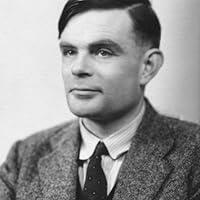
Alan M. Turing
O Autorze
Alan M. Turing was a pioneering British mathematician, logician, and computer scientist, widely considered to be the father of computer science. His groundbreaking work during World War II, particularly at Bletchley Park, involved developing techniques to break the German Enigma code, which significantly contributed to the Allied victory. Turing's contributions to the field of artificial intelligence and theoretical computer science laid the foundation for modern computing, making him a crucial figure in the history of technology.
Despite his monumental contributions, Turing faced significant personal challenges, including persecution for his sexuality, which was criminalized in the UK at the time. In 1952, he was convicted of 'gross indecency' and underwent chemical castration as a result. Tragically, Turing's life ended prematurely in 1954, when he died under circumstances that many believe to be suicide. His legacy continues to inspire advancements in computer science and discussions about ethics in technology, making him an enduring figure in both historical and contemporary contexts.